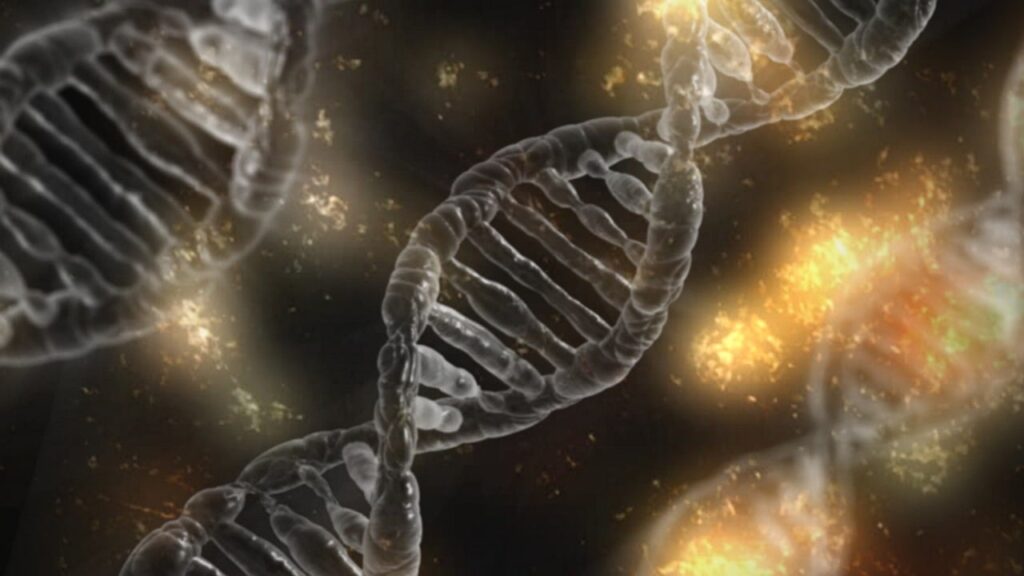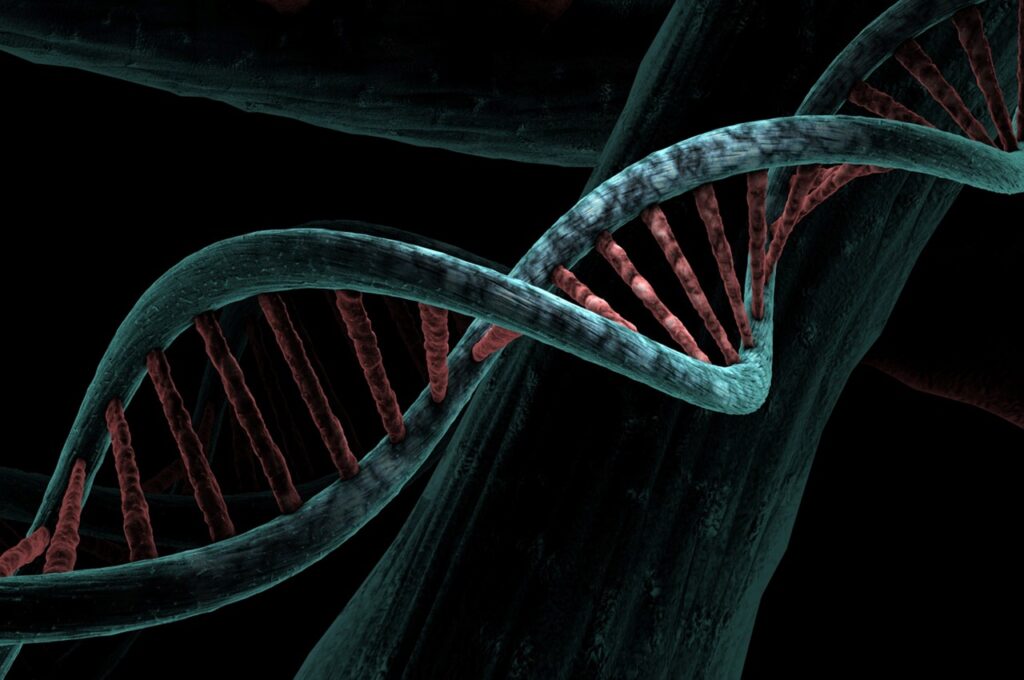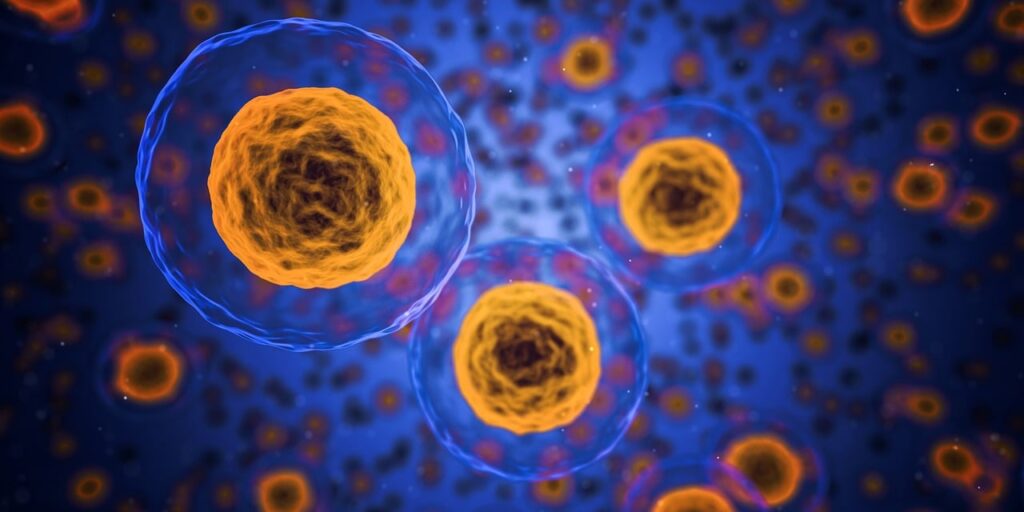Are you curious about the impact of genetics on your fitness journey and body composition? In this article, we will explore the fascinating role that genetics play in shaping your physical fitness and body composition. Discover how your genetic makeup can determine factors such as muscle development, metabolism, and even your response to exercise. By gaining a deeper understanding of the genetic components involved, you will be better equipped to tailor your fitness routine and achieve the results you desire. Let’s unravel the mysteries behind genetics and their influence on your fitness and body composition!
Understanding the Role of Genetics in Fitness and Body Composition
Welcome to this comprehensive article on understanding the role of genetics in fitness and body composition! In this article, we will explore the basics of genetics, how genetics can influence our fitness levels and body composition, the interaction between genetics and the environment, the concept of heritability, genetic testing for fitness and body composition, the impact of genetic variations on athletic performance, the influence of epigenetics on fitness, and the future of genetic research in this field.
The Basics of Genetics
Definition of Genetics
Genetics is the scientific study of genes, heredity, and the variation of inherited traits. It focuses on understanding how genes are passed down from parents to offspring and the role they play in determining an individual’s traits, including physical characteristics, susceptibility to diseases, and even fitness capabilities.
The Role of Genes
Genes are the fundamental units of heredity responsible for encoding the information that determines specific traits. They are segments of DNA (deoxyribonucleic acid) located on chromosomes and consist of specific sequences of nucleotides. Genes provide instructions for the synthesis of proteins that play various roles in the body, including muscle development, metabolism, and hormone regulation.
Inheritance Patterns
Inheritance patterns determine how traits, such as those related to fitness and body composition, are passed down from one generation to the next. These patterns can be influenced by various factors, including dominant and recessive alleles, sex-linked genes, and polygenic inheritance. Understanding these patterns helps explain why certain traits, such as height or athletic performance, may run in families.
Genetic Variation and Polymorphisms
Genetic variation refers to the differences in genetic material between individuals or populations. These variations are the result of genetic mutations, genetic recombination, and gene flow. Polymorphisms are specific variations in the DNA sequence that can occur at a single nucleotide or involve larger segments. These variations can influence an individual’s response to exercise, metabolism, and body composition.

Genetics and Fitness
Role of Genetics in Physical Abilities
Genetics plays a significant role in determining an individual’s physical abilities. Factors such as muscle strength, power, endurance, speed, and flexibility can be influenced by genetic variations. While genetics provide a foundation for these abilities, environmental factors and training can also have a significant impact on their development.
Muscle Fiber Types and Genetic Predisposition
Muscle fibers can be divided into different types, mainly categorized as slow-twitch (Type I) and fast-twitch (Type II) fibers. The proportion of these fibers in an individual’s muscles is partly determined by genetics. Some individuals may have a higher proportion of fast-twitch fibers, which are associated with explosive movements and power, while others may have a higher proportion of slow-twitch fibers, which are associated with endurance activities.
VO2 Max and Genetic Factors
VO2 max is a measure of the body’s maximum oxygen consumption during exercise and is considered an indicator of cardiorespiratory fitness. Genetic factors, such as variations in genes related to oxygen transport and utilization, can contribute to differences in individuals’ VO2 max levels. These variations can impact an individual’s aerobic capacity and endurance performance.
Genetics and Athletic Performance
Genetic variations can influence athletic performance in various sports. Certain genes and alleles have been associated with performance traits, including power, speed, endurance, and precision. Understanding these genetic associations can help identify individuals with a predisposition for excelling in specific sports and tailor training programs accordingly.
Genetic Influence on Speed and Power
Genetic factors can contribute to an individual’s speed and power capabilities. Variations in genes involved in muscle contraction, energy production, and neural signaling can influence an individual’s ability to generate force, produce speed, and exhibit explosive power. These genetic factors can partially explain why some individuals naturally excel in sprinting, weightlifting, or other power-based sports.
Genetic Predisposition for Endurance
Similarly, genetic factors can influence an individual’s predisposition for endurance activities. Genes related to oxygen transport, muscle metabolism, and aerobic capacity can impact an individual’s ability to sustain prolonged exercise. Some individuals may have a genetic advantage in endurance sports such as long-distance running, swimming, or cycling.
Genetics and Muscle Strength
Muscle strength is influenced by both genetic and environmental factors. Genetic variations in genes responsible for muscle development, structure, and function can affect an individual’s potential for muscle strength. However, regular strength training and exercise can also significantly impact an individual’s muscle strength, even if they may not have a genetic predisposition for high strength.
Genetic Factors Affecting Flexibility
Flexibility, the range of motion around a joint, can also be influenced by genetics. Genetic variations in genes associated with connective tissues, muscle elasticity, and collagen synthesis can impact an individual’s natural flexibility. However, consistent stretching and flexibility exercises can improve flexibility regardless of genetic predisposition.
Genetic Factors Affecting Body Composition
Genetic Basis of Obesity
Genetics plays a role in influencing body composition, particularly when it comes to obesity. Certain genes can increase an individual’s susceptibility to weight gain and obesity. These genes may impact appetite regulation, metabolism, fat storage, and the body’s response to dietary factors.
Genetic Variants Related to Fat Accumulation
Specific genetic variants have been identified as being associated with fat accumulation and distribution in the body. These variations can affect how the body stores and metabolizes fat, potentially leading to differences in body composition. Understanding these genetic factors can help individuals make informed lifestyle choices to manage their body weight and composition.
Genes Influencing Lean Body Mass
Genetic factors also influence an individual’s potential for developing lean body mass. Genes involved in muscle synthesis, muscle growth, and protein metabolism can impact an individual’s ability to build and maintain muscle mass. These genetic variations can partially explain why individuals respond differently to exercise and dietary interventions aimed at increasing muscle mass.
Genetic Factors Impacting Metabolism
Metabolism, including energy expenditure and nutrient utilization, can be influenced by genetics. Variations in genes related to metabolic rate, appetite regulation, and energy balance can impact an individual’s metabolic efficiency and predisposition to weight gain or weight loss. Understanding these genetic factors can guide personalized dietary and exercise strategies for optimizing body composition.
Impact of Genetics on Diet-Induced Weight Loss
Genetic variations can influence an individual’s response to specific dietary interventions. Some genetic factors may make individuals more responsive to particular diets, such as low-carbohydrate or low-fat diets, in terms of weight loss and body composition changes. Genetic testing can provide valuable insights for personalized dietary recommendations.
Genetics and Body Fat Distribution
Genetic factors can influence where fat is stored in the body. Some individuals may have a genetic predisposition for storing fat in certain areas, such as the abdomen or hips. This body fat distribution can be associated with differences in health risks, with abdominal fat accumulation being correlated with an increased risk of chronic diseases.

The Interaction Between Genetics and Environment
Gene-Environment Interaction
Genetics and the environment interact and influence each other in complex ways. While genetics provide the foundation for an individual’s traits, environmental factors, including lifestyle, diet, exercise, and exposure to toxins or stress, can influence how genes are expressed. The interaction between genetics and the environment plays a crucial role in determining an individual’s fitness levels and body composition.
Impact of Lifestyle on Genetic Expression
Healthy lifestyle choices, including regular exercise, balanced nutrition, and adequate rest, can positively influence the expression of certain genes related to fitness and body composition. For example, engaging in regular physical activity can promote the expression of genes involved in muscle growth and metabolism, leading to improved fitness levels and body composition.
Genetics and Response to Exercise
Genetic variations can impact an individual’s response to exercise interventions. Some individuals may be genetically more responsive to specific types of exercise, such as endurance training or resistance training, in terms of fitness improvements and body composition changes. Understanding these genetic factors can help tailor exercise programs for optimal results.
Nutritional Influences on Genetic Factors
Dietary factors can influence genetic expression and impact fitness and body composition outcomes. Certain nutrients, such as omega-3 fatty acids or antioxidants, can modulate gene expression and enhance exercise-related adaptations. Additionally, dietary choices can influence the expression of genes related to metabolism, nutrient utilization, and muscle growth.
Effects of Environmental Factors on Genetic Predisposition
Environmental factors, including toxins, pollutants, stress, and socioeconomic conditions, can modify the impact of genetic predisposition on fitness and body composition. For example, individuals with genetic variations associated with obesity may be at a higher risk of weight gain in an obesogenic environment characterized by easy access to unhealthy food and sedentary lifestyles.
Heritability in Fitness and Body Composition
Understanding Heritability
Heritability refers to the proportion of variation in a trait that can be attributed to genetic factors within a population. It provides an estimation of the influence of genetics on a given trait, such as fitness or body composition. Heritability is typically measured on a scale of 0 to 1, with a higher value indicating a greater genetic influence on the trait.
Heritability Estimates in Fitness Traits
Various fitness traits, including aerobic capacity, strength, power, endurance, and flexibility, show varying degrees of heritability. Twin and family studies have provided insights into the heritability estimates of these traits. While genetic factors contribute to these traits, it is essential to note that environmental and lifestyle factors still play significant roles in their development.
Heritability Estimates in Body Composition Traits
Body composition traits, such as body mass index (BMI), body fat percentage, and lean body mass, also exhibit heritability. Heritability estimates for these traits vary depending on the population studied and the specific subtraits measured. Genetic factors can contribute to individual differences in body composition, but lifestyle factors, including diet and exercise, are key determinants as well.
Genetic Influence vs. Environmental Factors
Heritability estimates provide an understanding of the relative contributions of genetic and environmental factors to a given trait. However, it’s important to note that genetics and the environment are not mutually exclusive but interact and influence each other. The interplay between genetics and the environment determines an individual’s unique fitness levels and body composition.
Importance of Heritability in Personalized Fitness Approaches
Understanding the heritability of fitness and body composition traits is crucial for developing personalized fitness approaches. By considering an individual’s genetic predisposition and identifying specific areas of genetic influence, personalized training programs and dietary interventions can be designed to optimize fitness outcomes and body composition changes.

Genetic Testing for Fitness and Body Composition
The Rise of Genetic Testing
Genetic testing has become increasingly accessible and affordable, allowing individuals to gain insights into their genetic predispositions related to fitness and body composition. Advances in technology, such as direct-to-consumer genetic testing kits, have made it possible for individuals to obtain information about their genetic variations with ease.
Types of Genetic Tests
There are various types of genetic tests available for assessing fitness and body composition-related genetic variations. These tests can analyze specific genes associated with traits such as muscle performance, metabolism, nutrient utilization, and dietary responses. Some tests may focus on genetic variants related to athletic performance, while others may provide information on genetic factors impacting body composition or metabolic characteristics.
Assessing Fitness-Related Genetic Variations
Genetic testing can provide insights into an individual’s genetic variations that may contribute to fitness-related traits. These variations may include genes associated with muscle function, muscle growth, endurance capacity, oxygen utilization, or energy metabolism. Understanding these genetic variations can help individuals tailor their training programs and make informed decisions related to exercise intensity, recovery, and nutrition.
Understanding Genetic Risk Factors
Genetic testing can also identify potential genetic risk factors for certain fitness-related conditions or diseases. For example, some genetic variations may increase an individual’s susceptibility to particular injuries or health issues related to exercise. This knowledge can help individuals take proactive measures to prevent or manage these risks.
Ethical Considerations of Genetic Testing
While genetic testing can provide valuable information, it is important to consider the ethical implications associated with it. Various concerns, such as privacy, data security, psychological impact, and potential misuse of genetic information, need to be addressed. Individuals considering genetic testing should be aware of these considerations and seek guidance from healthcare professionals or genetic counselors.
Genetic Variations and Athletic Performance
Genes Associated with Performance Traits
Numerous genes have been identified as potentially influencing athletic performance. These genes may be involved in various aspects of performance, such as energy metabolism, muscle structure, oxygen transport, inflammation response, or recovery. Understanding the genetic variations in these genes can provide insights into an individual’s genetic potential in specific sports or activities.
Influence of Genetic Variations on Training Response
Genetic variations can impact an individual’s response to training interventions. Some genetic variants may indicate a greater potential for improvements in specific fitness traits with certain types of exercise or training methods. By understanding these genetic variations, individuals can optimize their training strategies to capitalize on their genetic advantages and improve their athletic performance.
Genetic Markers for Sports Performance
Genetic markers, including single nucleotide polymorphisms (SNPs) or specific genetic variations, have been associated with performance in certain sports. These markers may be predictive of an individual’s potential for success or predisposition to excelling in specific athletic activities. However, it is important to note that genetic markers are just one piece of the puzzle and do not determine an individual’s entire athletic potential.
Gene Doping and Anti-Doping Measures
The field of genetics and athletic performance raises ethical concerns related to gene doping. Gene doping involves manipulating an individual’s genetic material to enhance athletic performance artificially. As advancements in genetic research continue, both the sporting community and anti-doping organizations must stay vigilant and adopt measures to detect and deter gene doping practices.

Epigenetics and Its Influence on Fitness
Definition and Mechanisms of Epigenetics
Epigenetics refers to the study of heritable changes in gene expression caused by mechanisms other than changes to the underlying DNA sequence. Epigenetic modifications can determine how genes are turned on or off and influence an individual’s traits and characteristics. These modifications can be influenced by various environmental factors, including exercise, diet, stress, and exposure to toxins.
Epigenetic Modifications and Fitness
Epigenetic modifications can directly impact an individual’s fitness capabilities. They can influence gene expression related to muscle development, metabolism, energy production, and cardiovascular health. Regular exercise has been shown to induce epigenetic modifications that enhance fitness-related gene expression and promote adaptations such as increased muscle mass, improved aerobic capacity, and better metabolic health.
Epigenetics and Training Adaptations
Epigenetic modifications play a role in mediating the body’s response to exercise and training adaptations. They can influence how genes involved in muscle growth, fat utilization, oxygen utilization, and energy metabolism are expressed and regulated. Understanding the epigenetic mechanisms underlying training adaptations can help optimize training programs for improved fitness outcomes.
Environmental Factors and Epigenetic Changes
Environmental factors, such as exercise, diet, and stress, can induce epigenetic changes that impact fitness-related gene expression. Regular exercise has been shown to promote positive epigenetic modifications associated with improved fitness outcomes. On the other hand, factors like a sedentary lifestyle, poor diet, or chronic stress may contribute to negative epigenetic changes that can impact fitness and overall health.
Transgenerational Inheritance of Fitness Traits
Epigenetic modifications can sometimes be inherited and passed down through generations. This transgenerational inheritance of fitness traits suggests that the lifestyle choices and environmental exposures of previous generations can influence the fitness capabilities of their descendants. It emphasizes the importance of promoting a healthy lifestyle and creating an environmentally supportive of fitness for future generations.
Nutrigenomics: How Genetics Impact Diet and Exercise
Definition of Nutrigenomics
Nutrigenomics is the study of how an individual’s genetic variations influence their response to diet and nutrition. It explores how genetic factors can impact nutrient metabolism, nutrient utilization, and the body’s physiological response to dietary components. Understanding nutrigenomics can help individuals make informed dietary choices based on their genetic predispositions.
Genetic Variations and Nutrient Metabolism
Genetic variations can influence how the body processes and metabolizes nutrients from the diet. For example, certain genetic variations may impact an individual’s ability to digest and absorb specific nutrients, such as lactose or gluten. Understanding these genetic factors can guide personalized dietary recommendations to optimize nutrient utilization and overall health.
Genetic Factors and Dietary Responses
Genetic factors can contribute to individual variations in response to specific dietary components, such as carbohydrates, fats, or proteins. Some individuals may be more responsive to low-carbohydrate diets, while others may benefit more from low-fat diets, based on their genetic variations related to metabolism or insulin sensitivity. Knowledge of these genetic factors can help individuals tailor their dietary approaches for optimal results.
The Effect of Exercise on Gene Expression
Exercise can directly impact gene expression and induce favorable changes in the body. Some genetic variations may modulate an individual’s response to exercise, influencing the expression of genes related to muscle growth, metabolism, and cardiovascular health. By understanding these genetic factors, individuals can optimize their exercise programs to enhance fitness outcomes and overall health.
Personalized Nutrition and Exercise Recommendations
Nutrigenomics and genetic testing can provide insights into an individual’s genetic predispositions related to diet and exercise. By combining genetic information with other factors such as lifestyle, medical history, and personal goals, personalized nutrition and exercise recommendations can be developed. These recommendations can help individuals make informed choices that align with their genetic predispositions for optimal health and fitness outcomes.

The Future of Genetic Research in Fitness and Body Composition
Advancements in Genetic Technologies
Advancements in genetic technologies continue to drive research in fitness and body composition. Techniques such as next-generation sequencing, genome-wide association studies (GWAS), and genome editing technologies have significantly advanced our understanding of the genetic factors influencing health and performance. These advancements hold promise for further unraveling the complexities of genetics in fitness and body composition.
Integration of Genetics and Bioinformatics
The integration of genetics and bioinformatics is revolutionizing research in the field of fitness and body composition. Bioinformatics tools and computational models can analyze vast amounts of genetic data, identify relevant genetic variations, and predict their impact on fitness-related traits. These tools enable more in-depth and comprehensive analyses to guide personalized approaches for individuals.
Precision Medicine in Fitness
Precision medicine aims to tailor healthcare interventions to individual characteristics, including genetic makeup. In the realm of fitness and body composition, precision medicine holds promise for developing personalized exercise programs, nutritional recommendations, and lifestyle interventions based on an individual’s unique genetic profile. This approach recognizes that each person’s genetic variations and environmental factors contribute to their health and fitness outcomes.
Ethical Considerations and Privacy Issues
As genetic research continues to advance, ethical considerations and privacy issues become increasingly important. Safeguarding genetic data, ensuring informed consent, and addressing potential biases or discrimination are critical considerations in the field. Balancing the benefits of genetic research with the protection of individuals’ rights and autonomy is essential for the responsible and ethical advancement of this field.
Implications for Personalized Training and Health
The future of genetic research in fitness and body composition holds great potential for personalized training and health approaches. By considering an individual’s genetic variations, lifestyle factors, and health goals, personalized exercise programs, dietary strategies, and lifestyle interventions can be developed. This personalized approach can optimize fitness outcomes, promote overall health, and facilitate long-term adherence to healthy habits.
In summary, genetics plays a significant role in determining an individual’s fitness levels and body composition. Genetic factors can influence physical abilities, body composition traits, and an individual’s response to exercise and dietary interventions. Consideration of both genetics and environmental factors is crucial for a comprehensive understanding of an individual’s fitness potential and the development of personalized approaches for improving fitness and body composition. As genetic research advances, the integration of genetics, epigenetics, nutrigenomics, and bioinformatics holds great promise for the future of precision medicine in fitness and body composition.



